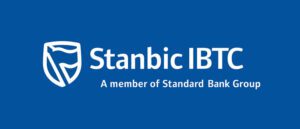


Naira falls to 1,530/$ on parallel market as dollar shortage intensifies
The naira on Tuesday continued its free fall across the foreign exchange (FX) market, depreciating to a new low of 1,530 per dollar on the parallel market, also known as the black market.
This represents 0.98 percent (N15/$1) depreciation compared to N1,515 quoted on Monday on the black market.
The renewed naira depreciation after the gains in April 2024 was attributed to a shortage of dollars occasioned by the repatriation of funds by foreign portfolio investors (FPIs).
FX trading at the Nigerian Autonomous Foreign Exchange Market (NAFEM) witnessed a depreciation in the value of the local currency by 0.79 per cent as the dollar was quoted at N1,478.11 on Monday, weaker than N1,466.31 quoted on Friday.
Dollars supplied by willing sellers and willing buyers increased significantly by 91.28 percent to $217.64 million on Monday from $113.78 million recorded on Friday.
The intraday high closed at N1,515 per dollar on Monday, weaker than the N1,490 closed on Friday. The intraday low appreciated to N1,301/$1 as against N1,322/$1 on Friday.
The Naira was able to extend its appreciation from mid-March till mid-April, before the recent decline. The naira however closed flat against the dollar in April appreciation only by about 0.04 percent in the official market, according to a report.
A report by Comercio Partners noted that the transition from a managed fixed to a floating exchange rate regime resulted in a depreciation of the naira, with significant volatility leading to a low of N2,000/1$.
This continuous depreciation may have prompted the Central Bank of Nigeria (CBN) to take action to support the exchange rate by increasing the monetary policy rate (MPR).
In February 2023, the CBN, under the administration of Cardoso, implemented the first-rate hike, raising the MPR by 400 basis points to 22.75 percent. This was followed by an additional increase in March, raising the MPR by 200 basis points to 24.75 percent. These hikes in interest rates coincided with a strengthening of the naira, which appreciated to as high as N1,150/$1, the report stated.
The temporary stability occurred due to CBN interventions aimed at curbing speculation on the Naira by banks and other parties, such as the prohibition of Foreign Currency Collaterals for Naira Loans and directives to international money transfer operators (IMTOs) to align their exchange rates with prevailing market rates at the official foreign exchange market.
“The CBN might apply the same strategy of maintaining its hawkish stance to give the exchange rate more strength, particularly since it has seen some commendable results given that the naira currency was one of the best-performing currencies in April,” analysts at Comercio Partners said.



